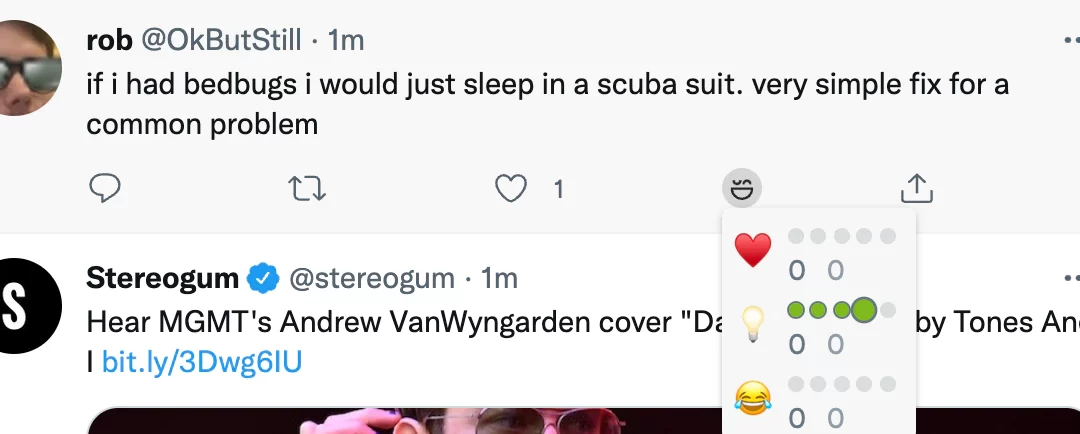Yup, a crypto-backed social media platform, has raised $3.5 million in a funding round led by Distributed Global, with support from Dapper Labs and a host of prominent angel investors.
Among those angels were Patrick Rivera (of the Web 3 publishing service Mirror), Scott Moore (of Gitcoin), and Nader Al-Naji, the controversial developer behind BitClout and the DeSo blockchain.
Yup works a little like Pinterest, in that it lets users curate content from a variety of different social sites. Installing Yup’s browser extension adds a little button next to posts on Twitter and Facebook; clicking the button lets you assign posts a rating.
Yup also gives users an “Influence Score” out of 100 points – the more points you have, the more influential your ratings are. Because it’s backed by crypto, those ratings translate to tokens. The idea is that if you’re among the first people to rate a piece of content, and that content ends up going viral, your curatorial efforts are rewarded with cryptocurrency.
Yup’s founders, Nir Kabessa and Vernon Johnson, began developing the idea for Yup a couple years ago, as members of Columbia’s blockchain research club; the pair graduated last year, at the height of the pandemic.
Kabessa and Johnson used that college connection to snag an investment from Bill Block, the CEO of Miramax and a fellow Columbia alumnus.
“For the average person, it’s very easy to recognize that their tastes, their earliness has value, and is creating value online,” Kabessa told CoinDesk over Zoom. “And we’re giving them a way to monetize that, and directly be rewarded and recognized for participating.”
Crypto social media experiments
Many have tried, when it comes to decentralized social platforms, and almost none have succeeded. The most recent attempt came from Nader Al-Naji (also a 20-something Ivy Leaguer) whose blockchain-backed social app BitClout was met with extreme skepticism when it launched earlier this year.
According to Kabessa, Yup is uniquely positioned to solve some of the issues plaguing contemporary social media, particularly with regard to misinformation and content moderation.
“Facebook as a platform has a large incentive to not only have you see more content, but have you see more controversial content that causes what they call ‘deep engagement’ and causes you to react,” he explained. “They could easily reduce the quantity of controversial content that you see, but that would directly impact the amount of ads they’re able to sell.”
Yup’s solution is community moderation: a system that lets users decide, collectively, what they do and don’t want to see.
“The question is, can we come to consensus on that together, in sort of a decentralized manner, rather than leaving it up to an organization to be the arbiter of truth?” suggested Kabessa. “Can we reward and recognize curators better, such that we come to a better social consensus on what’s valuable online?”
It’s a nice concept, but it’s also relatively untested. How does community moderation work at scale?
For Yup’s investors, the platform’s central idea – that people want to be rewarded for being early, for being a tastemaker – is very much worth a shot.
“We believe that Web 2 platforms don’t actually want to be the arbiters of truth, but have found themselves in those situations and would like to go back to a place of being a town square,” Kabessa said. “We’ll need to look to decentralized protocols to achieve that.”














